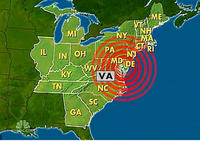-
Hurricane Isaac tests Loyola University's emergency response plans
In the days following Hurricane Isaac’s slow march across south Louisiana, Loyola University New Orleans administrators have been reviewing their response with a critical eye to ensure emergency preparations continue to evolve and meet the demands of each situation; beginning Tuesday, 28 August, New Orleans felt the first of Isaac’s high winds and heavy rains – but Loyola University was ready
-
-
Government considering options for post-biolab Plum Island

The Plum Island biolab, located on an 840-acre island of the tip of Long Island, has always been shrouded in mystery owing to the sensitive nature of the biological research done in its high-security facilities; now the center is being shut down by DHS, and the government is considering several options regarding what should be done on the island and the research facility
-
-
Many of the U.S. 20 million manholes are in need of immediate rehabilitation or replacement

The EPA estimates that there are about twenty million manholes in the United States – or one manhole for every 400 feet of pavement on average; many of those manholes are in serious decay or in need of immediate rehabilitation or replacement
-
-
As Hurricane Isaac beats on New Orleans, new infrastructure is holding up

This week, as Hurricane Isaac was threatening to replicate the physical damage that Katrina inflicted, it has become apparent that $14 billion worth of changes and improvements in infrastructure, planning, and emergency response procedures have given the city of New Orleans and the Gulf states the ability to withstand the worst of the storm
-
-
Isaac leaves flooding, power outages in its path

Hurricane Isaac lost its Category 1 hurricane status midday Wednesday and was downgraded to a tropical storm, but the severe rains and winds which it brought with it have not let up much; the number of power outages continues to increase as the number of homes and businesses without electricity is now up to 834,000 between Louisiana, Mississippi, Alabama, Florida, Texas, and Arkansas, with over one-third of the outages in Louisiana alone
-
-
Evaluating fresh water sustainability in the southern U.S.
Researchers have embarked on 4-year federal research effort to evaluate freshwater sustainability across the southern United States and develop policy recommendations on what can be done to make the best use of water supplies in the face of population growth and the effects of climate change over the next ten to thirty years
-
-
New Jersey infrastructure badly needs shoring up, and soon
According to experts, changes to the way New Jersey maintains its infrastructure must be made soon, or the state could be vulnerable to catastrophic failures in its water and power systems as well as collapsing roads; the North Jersey Transportation Planning Authority says more than $56.9 billion will be needed just to maintain state roads, rails, and public transportation systems through 2035; when you add in improvements to account for environmental changes and the expanding population in the state, the bill skyrockets to more than $123 billion
-
-
China’s growing role in U.S. infrastructure building, maintenance
The building and maintenance of heavy infrastructure in the United States, which includes road, mass transit, marine, and building construction, is worth $44.1 billion per year and $12 billion in annual wages; bridge and tunnel construction is worth an estimated $24 billion in revenue and $4.3 billion in wages; many wonder why, in this difficult times, states and municipalities hire Chinese companies for many of these infrastructure projects
-
-
Heat waves move toward California coasts, become more humid, imperiling health
Scientists detected a trend toward more humid heat waves which are expressed very strongly in elevated nighttime temperatures, a trend consistent with climate change projections; moreover, relative to local warming, the mid-summer heat waves are getting stronger in generally cooler coastal areas; this carries strong public health implications for the twenty-one million Californians living near the ocean whose everyday lives are acclimated to moderate temperatures
-
-
Last year’s east coast earthquake has the region preparing for another one

Last year an earthquake that was centered in Virginia shook up the entire east coast, surprising everyone; it did not result in any deaths and was considered relatively light compared to many tremors on the West Coast, but it was bad enough to force some states to prepare themselves in case of another quake
-
-
Activists in arms over plans to ship plutonium to New Mexico
A proposal to ship tons of plutonium to New Mexico, including cores of nuclear warheads which would be dismantled at a structurally questionable lab on top of an earthquake fault zone, has activists and nuclear watchdogs up in arms
-
-
NYPD monitoring of Muslim communities did not produce a single terrorist lead

An NYPDunit which gathers information on Muslim communities and businesses in order to uncover links to terrorist plots has been unable to do so in six years of engaging in monitoring Muslim communities in New York and New Jersey
-
-
Homeland security films informational but costly
Over the last four years the mayor’s office of Public Safety and Homeland Security in Houston, Texas, has spent $540,000 dollars to produce three short videos teaching people how to react in public safety emergencies; the price tag has some people upset
-
-
Court: Kentucky can continue to credit God for homeland security
The Kentucky Supreme Court has declined to hear a challenge to a state law that mandated that the commonwealth give credit to God for Kentucky’s homeland security; the Court let stand a 2011 Kentucky Court of Appeals ruling which found that a 2006 law, requiring the Kentucky Office of Homeland Security to publicize dependence on “Almighty God” in agency training and educational materials, did not violate the establishment clause in the Constitutional
-
-
New earthquake assessment finds increased risk for Washington Dams
Central Washington state has always been considered low risk for earthquakes back when big hydropower dams went up on the Columbia River many decades ago; a recently completed seismic hazard assessment, however, shows that there is a much greater earthquake potential for the area than previously thought; now, dam owners have to figure out whether their dams can hold up to an earthquake; if retrofits are needed, they could cost hundreds of millions of dollars
-
- All
- Regional
- Water
- Biometrics
- Borders/Immig
- Business
- Cybersecurity
- Detection
- Disasters
- Government
- Infrastructure
- International
- Public health
- Public Safety
- Communication interoperabillity
- Emergency services
- Emergency medical services
- Fire
- First response
- IEDs
- Law Enforcement
- Law Enforcement Technology
- Military technology
- Nonlethal weapons
- Nuclear weapons
- Personal protection equipment
- Police
- Notification /alert systems
- Situational awareness
- Weapons systems
- Sci-Tech
- Sector Reports
- Surveillance
- Transportation
Advertising & Marketing: advertise@newswirepubs.com
Editorial: editor@newswirepubs.com
General: info@newswirepubs.com
2010-2011 © News Wire Publications, LLC News Wire Publications, LLC
220 Old Country Road | Suite 200 | Mineola | New York | 11501
Permissions and Policies
Editorial: editor@newswirepubs.com
General: info@newswirepubs.com
2010-2011 © News Wire Publications, LLC News Wire Publications, LLC
220 Old Country Road | Suite 200 | Mineola | New York | 11501
Permissions and Policies
